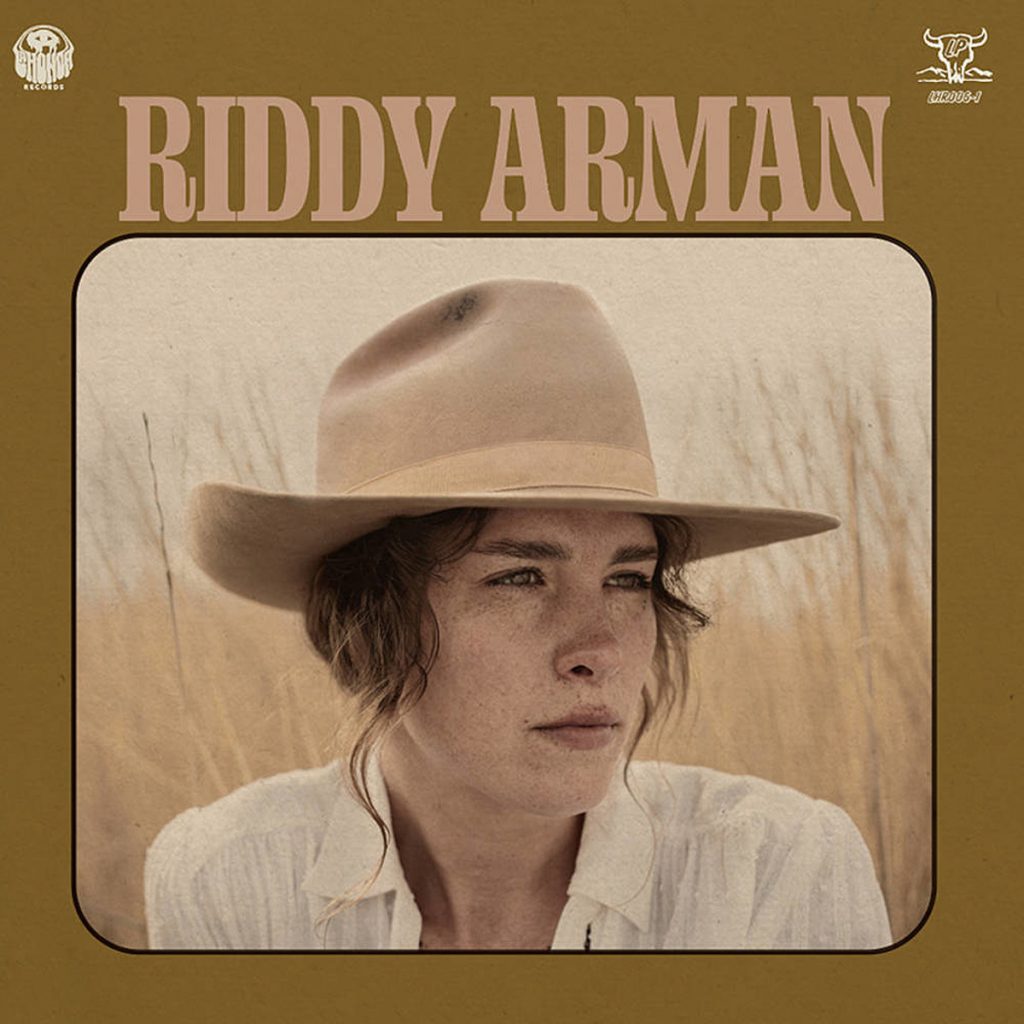Riddy Arman’s Songs Encompass the Full Sweep of Land and Human Emotion

When you know, you know. In a genre that places so much emphasis on authenticity — and all the fraught debates that brings — when you hear Riddy Arman’s life-weary voice, you know she’s the real deal. You don’t even have to know that she’s spent her adult life as a farmer and a ranch hand to appreciate the desolate spaces Arman evokes in her songs. Arman’s self-titled debut album is the start of a promising trail.
Arman sets the table with the masterful “Spirits, Angels, or Lies.” In the song, based on a true story, Arman relates her father’s posthumous visitation with Johnny Cash shortly before his own passing. The mournful waltz is reminiscent of its subject’s take on “Long Black Veil.” As Arman questions the fortuitousness of this vision, she draws upon cowboy mythology to signal that this album draws its influences from a specific time and place. Arman’s distinctive smoky alto sounds like it could come from any decade but this one, giving her songs a timeless feel.
That’s especially felt on “Old Maid’s Draw,” a meditative mid-tempo reflection on the physical labor Arman performed in her time ranch-sitting in Montana. Arman’s resigned yodel creates a physical impact on the listener, helping us feel the rhythm of hard work, even as her lyrics show her to be a keen observer of the natural world around her.
Arman also infuses her music with a dry sense of humor. On “Half a Heart Keychain,” sends a lover packing after discovering a trinket he is so clearly sharing with somebody else. Propelled along with a driving beat and droll guitar riff, Arman’s wish for “good riddance, goodbye” is delivered with a cool satisfaction.
That sense of humor can turn poisonous, though. On “Problems of My Own,” Arman’s narrator stares down the barrel of their future. The song opens with spare domestic imagery, only to zoom in on the narrator’s strained family life. The narrator concludes that as soon as they are able, they’ll grow up and find their own problems to deal with. Arman interrupts the saga with a measured monologue confronting the existential angst of adulthood and finding a way to try to escape, even if it’s all in vain.
Arman’s album runs the emotional gamut, but her confidence keeps the listener locked in. No matter which direction she turns, Arman knows she has complete control over her story and how she’s going to tell it. As sure as the harvest, Arman’s seeds of hard-won experience have bloomed into lessons in laughter and perseverance for us all.


